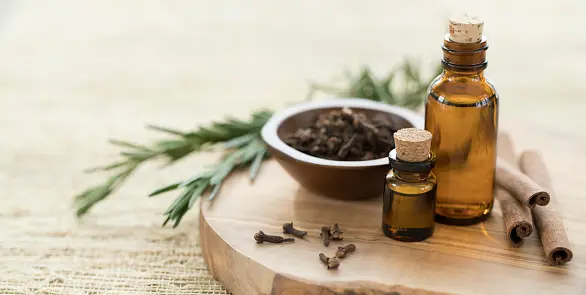
Scars, whether from wounds, surgeries, or skin conditions, can be lasting reminders of the body’s remarkable ability to heal. However, they often come with changes in texture and appearance that individuals may seek to minimize or improve.
Essential oils, derived from plants and renowned for their diverse properties, offer a natural and holistic approach to supporting the skin’s healing process.
Understanding the Therapeutic Potential of Essential Oils
Essential Oils for Scars possess a range of therapeutic compounds, including antioxidants, anti-inflammatory agents, and regenerative elements.
When applied topically, these oils can potentially influence the skin’s cellular regeneration and collagen production, aiding in scar healing and reducing the visibility of scars over time.
Lavender and Frankincense Oils: Dynamic Duo for Scar Reduction
Lavender and frankincense essential oils are standout choices for scar care. Lavender oil, with its soothing and anti-inflammatory properties, may help alleviate redness and irritation around scars.
Frankincense oil, known for its skin-regenerating capabilities, has the potential to support the healing process and improve the overall appearance of scars when applied regularly.
Citrus Oils for Brightening and Toning
Citrus Essential Oils for Scars such as lemon and orange, are rich in vitamin C, which is crucial for collagen synthesis. These oils may assist in brightening the skin and promoting an even skin tone.
However, caution should be exercised when using citrus oils, as they can increase sensitivity to sunlight. Dilution and nighttime application are often recommended.
Creating a Personalized Scar Care Routine
The effectiveness of essential oils in scar reduction often lies in consistency and personalized application. Developing a routine that includes a mix of essential oils suited to individual skin types and scar characteristics is key.
Diluting essential oils with carrier oils, such as jojoba or rosehip seed oil, not only enhances their application but also provides additional nourishment to the skin.
Frequently Asked Questions (FAQs) about Essential Oils for Scars:
Can essential oils completely eliminate scars?
While essential oils can promote skin healing and reduce the appearance of scars, complete elimination may not be guaranteed. The effectiveness varies among individuals, and factors such as the age and severity of the scar play a role.
Are essential oils safe for all types of scars?
Essential oils are generally safe for various types of scars, but it’s essential to consider individual skin sensitivity. Conduct a patch test before regular use and consult with a healthcare professional, especially for those with allergies or skin conditions.
How should I dilute essential oils for scar application?
It’s crucial to dilute essential oils with a carrier oil, such as jojoba or coconut oil, to avoid skin irritation. A common dilution ratio is 2-3 drops of essential oil per teaspoon of carrier oil, but this can be adjusted based on individual skin sensitivity.
Can essential oils be used on new scars?
Yes, essential oils can be applied to new scars, but it’s essential to wait until the wound has fully closed. Always consult with a healthcare professional if you have concerns about using essential oils on recent wounds.
How long does it take to see results when using essential oils for scars?
Results vary depending on factors such as the type of scar, individual skin response, and the consistency of essential oil application. It may take several weeks to months before visible improvements are noticed.
Are there essential oils to avoid for scar care?
Some essential oils may cause skin irritation or photosensitivity. For example, citrus oils like lemon and orange should be used with caution, especially when exposed to sunlight. It’s important to research each essential oil and its potential effects before use.
Can pregnant or breastfeeding women use essential oils for scars?
Pregnant or breastfeeding women should exercise caution and consult with a healthcare professional before using essential oils. Some oils may have contraindications during pregnancy or while nursing.
Can essential oils be used on surgical scars?
Yes, essential oils can be used on surgical scars once the incision has healed. Always follow post-surgery care instructions provided by medical professionals and consult with your healthcare provider before incorporating essential oils into your scar care routine.
Are there any side effects of using essential oils for scars?
While essential oils are generally well-tolerated, some individuals may experience skin irritation or allergies. It’s crucial to perform a patch test and discontinue use if adverse reactions occur. If you have concerns, consult with a healthcare professional.
Can essential oils be combined for scar treatment?
Yes, essential oils can be combined for a synergistic effect. However, it’s essential to research and understand the properties of each oil to ensure compatibility. Additionally, proper dilution is crucial to prevent skin irritation.


